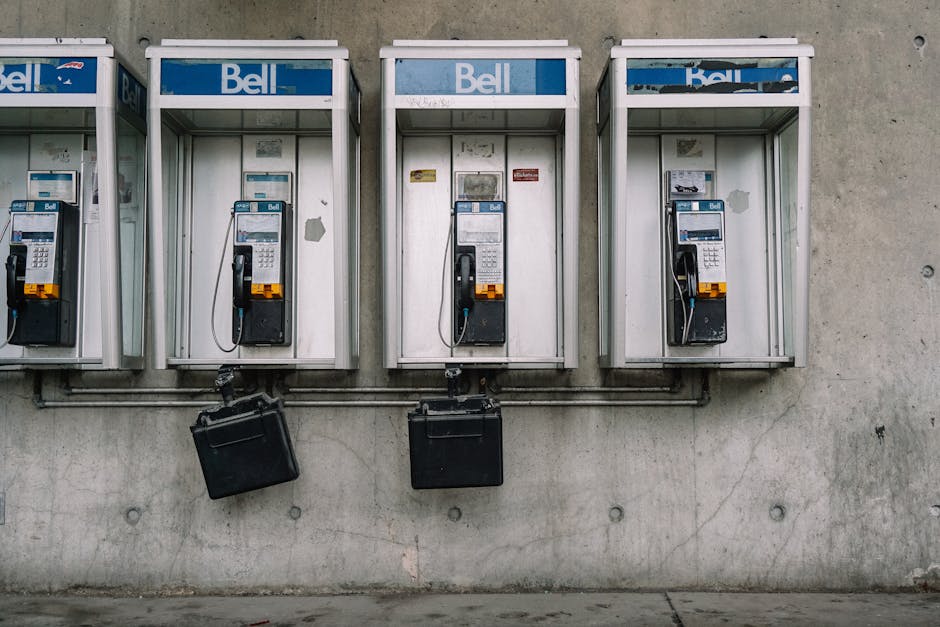What Is The Difference Between A Public Adjuster And An Insurance Adjuster?
There is some confusion about what makes up an insurance adjuster, or even whether there are formal requirements to be one. Some sources refer to them as public adjusters while others call them insurance agents, but either way it’s confusing for most people.
In this article we will go over everything you need to know about professional insurance adjusting in America! So that other blogs and websites can help clear up any misinformation, we will include links to each part of this content.
You won’t find anything too complicated here- this information is designed to be straightforward and practical. We have also included some testimonials so you can see how different professionals perform their jobs.
There is no wrong choice here– just make sure you get your facts straight before choosing who to hire for your claim!
Stay tuned and read on for more info…
Definition of insurance adjuster
An insurance adjuster is someone that works for an insurer to help claimants receive coverage, pay for losses, or recover damages from offenders.
Typically, they are hired by the insurer directly, but may work for companies such as Taylor Agency, which pays them a monthly fee per policyholder. These fees cover the cost of resources such as investigators, forensic accountants, and other professionals who aid in claims processing.
Claims processors deal with not only the claimant, but also representatives from the offender’s side (i.e., lawyers), and any additional parties involved in the claim (such as the victim organization). They coordinate all these people and make sure everything goes smoothly for everyone involved.
There is no standard degree program to become an insurance adjusting professional. However, most major universities have some sort of bachelor’s degree program with advanced standing that allows you to enter into the field. Most employers require at least a master’s degree, so look up educational programs online and visit local career fairs to see what job openings exist.
Who is a public adjuster?

A public adjuster is not necessarily affiliated with an insurance company, nor does he get paid by the policyholder- that is you!
Public adjusters are usually hired directly by property owners or tenants to handle their claims. They are typically compensated through a contingency fee basis, which means they are rewarded for proving coverage and obtaining payment for your claim, not linked to whether the insurer covers the loss or not. This is why it is important to use only certified professionals when seeking compensation for a claim.
That said, most major insurers have representatives that are trained in the art of public adjusting. These individuals are called “adjusters” and they are well versed in the process and laws related to publicizing coverages. Thus, although there is no requirement to work for an insurance company as an adjuster, working for an independent contractor may be more successful than trying to represent yourself as an "insurance agent"
There are two main types of public adjusters: litigation and nonlitigation. Litigation adjustment agencies focus mostly on lawsuits to prove liability and collect money from defendants, while nonlitigation agencies deal with things like water damage, structural issues, and other non-theft related losses. Many people mix up these types of public adjustors, but they are clearly differentiated.
Who is an insurance adjuster?

An insurance claims professional you may meet frequently in the coming months is usually referred to as an “insurance adjustor.” This term seems pretty straightforward, but what does it mean?
The word “adjustor” comes from the French word aduisant, which means advisor or consultant. In other words, this person helps you make informed decisions by offering his/her advice.
Typically, people who work as insurance claim professionals are professionally trained in liability (how to defend someone if they hurt another due to their negligence), property damage (repairing or replacing things like furniture and cars) and general business practices such as how to run an office.
These areas of expertise are very important parts of working as an insurance claims professional because they help ensure that the insured gets the best possible care for their injuries without any unnecessary legal battles.
What is the difference between a public and an insurance adjuster?

While some people may refer to both as “adjusters,” there is actually a big difference. An insurance company hires professional claim representatives that are paid through premiums payments made by insureds.
These professionals have extensive training in liability claims such as car accidents, homeowner’s policies, business owners policies, etc. Therefore, they know how to assess coverage and handle disputes about policy limits with respect to paying out benefits.
A third party (public) property damage or personal injury claim does not require expertise in this area. Typically, these cases involve lawsuits filed against an individual or entity for negligence or wrongdoing which led to the loss. These attorneys and/or claimants pay their own expenses including attorney’s fees, court costs, etc.
What is the difference between a claim and a lawsuit?

A claim is when someone else pays your bills for you, or you are paid money because of something that you did or were harmed by. For example, if I broke my leg in a car accident caused by another driver, I would seek compensation from them directly through their insurance company and/or via our courts.
A lawsuit is when you take legal action against another person or group to get them punished for wrong doing. In court, we call this suing “on behalf of the other party.” It is not necessarily one individual acting on behalf of everyone else, but rather one major entity acting as a representative of all others. An organization can do this by hiring lawyers and having them act on its behalf.
Note: When there is a lawsuit, it is always two or more parties involved. It is never just you vs. X. There will usually be people representing the defendant(s) and people representing you (the plaintiff). This process can become very expensive so most cases are settled out of court with a agreement to pay a certain amount of money. If no such settlement happens then a trial takes place where evidence is presented and witnesses called to determine who was at fault and how much each person should be compensated.
The reason why there is often a delay before a case goes to trial is due to negotiations.
What is the significance of a lawsuit?

A lawsuit is when two or more parties are involved in a dispute over something, typically money. In this case, one party (the plaintiff) brings suit against another party (the defendant).
The plaintiff can be you as the defendant, someone else as the defendant, or both! For example, if I sue you for $1,000, then you could file a counterclaim and say “I am suing you for $1000,” making it a civil case instead of criminal.
In some cases, there is no clear winner since negotiations break down and one side sues the other. This is what happens in most lawsuits.
If one side wants to go through with litigation, then we refer to them as plaintiffs and defendants, respectively.
What makes a lawsuit significant is that it involves trying to win money from someone else. This may seem trivial at first, but think about it – how many times have you made a complaint to the government or business owner about their behavior and they just ignore your message?
You bring up a topic and nothing changes so you take legal action and hope for the best? Well, those people will probably not only pay you back, they may also lose money due to your actions! It is our duty as citizens to hold power accountable.
What should I tell my insurance company about a public adjuster?

With recent hurricane Ian that hit Florida and cities such as Fort Myers and Naples with devastating damage there has been a massive increase in insurance claims and also the demand for Public Adjusters in Fort Myers.
Even though they are not affiliated with your insurer, there is still one thing you need to make sure you disclose to them!
Public adjustment companies such as Intercoastal Public Adjusters of Fort Myers have been in business for over 20 years working with home owners to help improve insurance claim value. They do have professional licensing in the state of Florida that would allow them to work directly for you as the home or business owner. They must be hired as independent contractors by you, the policyholder.
Because of this, it is very important that you only give these outside professionals full access to your claim. This includes giving them permission to talk to other team members such as doctors, lawyers, and engineers who may play a role in assessing and repairing your home or business.
It can also mean letting them handle financial matters like negotiating with insurers and paying out claims to homeowners or businesses along side your own representatives.
What should I tell my insurance company about an insurance adjuster?

There is no legal difference between what a public adjuster and normal insurance adjusting agents do, but one thing is important to note – the term “insurance” used in their title.
A public adjuster does not have access to all of the funds that are needed to fix or restore your property, nor do they receive compensation while working for you. They are hired by you, the policyholder, as independent contractors through either direct hiring or via referral. This means they get paid once your policy has been canceled or renewed.
Typically, people will hire a public adjuster after a home or business fire because they want to make sure everything is covered! Hiring a professional public adjustment firm can save you money, help you find new homeowners coverage, and protect you from fraud. It is up to you if this situation benefits you or not.




